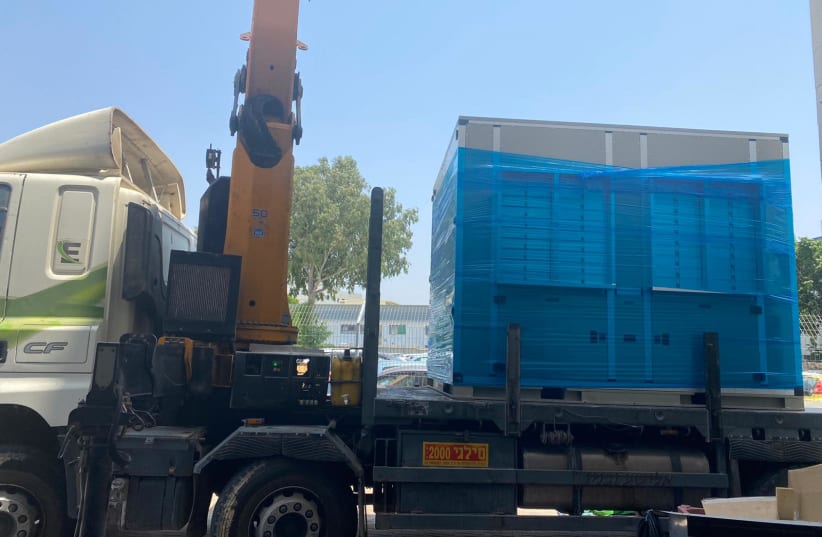Amid rising tensions between the Israeli and Palestinan governments comes some brighter cooperative news: Israeli company Watergen and the Arava Institute for Environmental Studies have recently donated a much-needed water generator to Gaza - the third within a year.
The third water generator donation was made on behalf of joint cooperation between Israeli and Palestinian entities, and was donated to Nasser Medical Center in Khan Younis, Gaza’s second largest hospital. It's the largest of the three generators donated so far, and by pulling water from the humidity in the air, can produce up to 5,000 liters of drinking water a day for the hospital, which up until now has purchased all its drinking water from vendors in tankers at high costs. "Water security is the first step toward addressing the environmental and natural resource challenges which lead to destabilization in the region," said David Lehrer, the Executive Director of the Arava Institute, one of the entities involved in the donation.
A continuing chronic lack of clean drinking water in Gaza has reached a crisis level in recent years, putting the life of Gaza residents in jeopardy. According to the United Nations Trade and Development Commission, 95 percent of Gaza’s ground water supply is found to be unfit for consumption, and if urgent measures are not taken in the upcoming year, soon enough it risks being left with no drinking water at all. Gaza suffers from water shortage in general, and drinking water shortage in particular.
This water crisis led to the first donation of generator was donated through the collaborative philanthropic efforts of the Watergen Company and the Arava Institute for Environmental Studies with Palestinian partners, in 2019.
The second generator was installed at the Rantisi Medical Center in Gaza City only two months ago.
The Watergen generators work by capturing humidity in the atmosphere and transforming it into potable water. They're aptly called the atmospheric water generator or AGW.
The project also takes into account the current electricity crisis going on in Gaza as well, as each AGW is installed with a solar panel system, so that the generators can still operate through power outages.
Recent water tests produced by the first pilot show that the quality of the drinking water produced by these generators is the best Gaza has seen in years.
Watergen and the Arava Institute are in close contact with international funding agencies and have proposed a plan for providing hundreds of Watergen AWGs to Gaza to produce hundreds of thousands of liters of high quality drinking water a day in order help relieve the stress of drinking water scarcity.
The project is part of the Track II Environmental Forum funded by the European Union. The new water generator has been generously funded by Watergen President Dr. Michael Mirilashvili, Jeffrey Abramson and his foundations, the Humanitarian Aid Committee of Neve Shalom-Wahat al Salam and Friends Associations, and Richard and Nancy Moskowitz. "We must be kind to our neighbors, even helping them before we help others around the world," said Mirilashvili.Watergen's generators recently made headlines, after the Israeli company made a donation to Guatemala following the tropical storm Amanda, which left residents of Guatemala struggling to deal with widespread flooding and destruction in the region.
